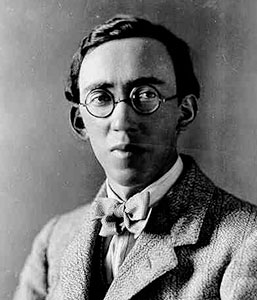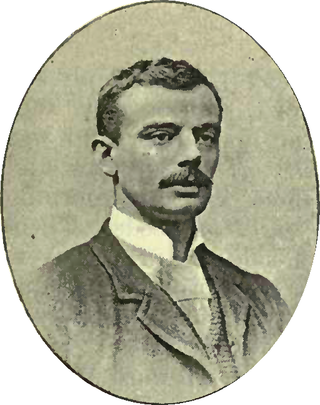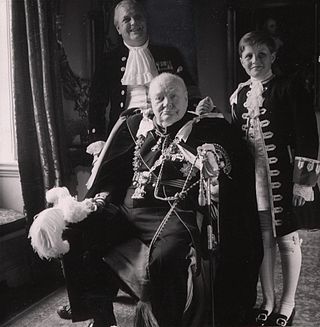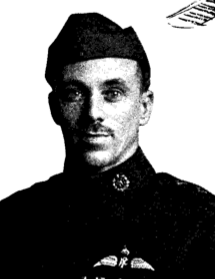Related Research Articles

The General Register Office for England and Wales (GRO) is the section of the United Kingdom HM Passport Office responsible for the civil registration of births, adoptions, marriages, civil partnerships and deaths in England and Wales and for those same events outside the UK if they involve a UK citizen and qualify to be registered in various miscellaneous registers. With a small number of historic exceptions involving military personnel, it does not deal with records of such events occurring within the land or territorial waters of Scotland, Northern Ireland or the Republic of Ireland; those entities' registration systems have always been separate from England and Wales.
Wanda Ventham is an English actress with many roles on British television since beginning her career in the 1950s.
Timothy Carlton Congdon Cumberbatch is an English actor.
Stanley James Warmington, or just S. J. Warmington, was an English actor who appeared on film, stage, radio, and television in the early 20th century.

Vernon March (1891–1930) was an English sculptor, renowned for major monuments such as the National War Memorial of Canada in Ottawa, Ontario, the Samuel de Champlain Monument in Orillia, Ontario, and the Cape Town Cenotaph, South Africa. Without the benefit of a formal education in the arts, he was the youngest exhibitor at The Exhibition of the Royal Academy of Arts.

Edwin Jesse Lonnen, credited as "E. J." or "Teddy", was an English actor, comedian and singer known for his performances in musical burlesques, operettas and musical comedies, particularly at the Gaiety Theatre, London at the end of the Victorian era.
Claude Martin Blagden was an eminent Anglican bishop in the first half of the 20th century.
Aino Lillalida Bergö was a Swedish ballerina, opera singer and film actress.
Thomas Hyde Villiers was a British politician from the Villiers family.

Fernand "Fred" Bonsor (1862-1932) was a rugby union international who represented England from 1886 to 1889, he also captained his country. At club level he played for Bradford FC, and Skipton RFC.

Sir Winston Churchill, Prime Minister of the United Kingdom between 10 May 1940 – 26 July 1945 and 26 October 1951 – 6 April 1955, was the eldest son of Lord and Lady Randolph Churchill, and grandson of the 7th Duke of Marlborough.
Ramsay Weston Phipps was an Irish-born military historian and officer in Queen Victoria's Royal Artillery. The son of Pownoll Phipps, an officer of the British East India Company's army, he was descended from the early settlers of the West Indies; many generations had served in the British, and the English military. Phipps served in the Crimean War, had a stint of duty at Malta, and helped to repress the Fenian uprising in Canada in 1866.

Admiral Sir Vernon Harry Stuart Haggard, KCB, CMG was a Royal Navy officer who went on to be Commander-in-Chief, America and West Indies Station. His career in the Royal Navy spanned forty-four years, from his entry as a youth in 1888 to his promotion to admiral in 1932.

Sydney March (1876–1968) was an English sculptor. His primary focus was portrait busts and other sculptures of British royalty and contemporary figures, as well as war memorials. The second-born of eight artists in his family, he and his siblings completed the National War Memorial of Canada after the death of their brother Vernon March in 1930, who had created the winning design. It is the site in Ottawa of annual Remembrance Day ceremonies.

Captain John Herbert Hedley was a World War I British flying ace credited with eleven aerial victories. The observer ace claimed to have survived a bizarre flying mishap which earned him the moniker "The Luckiest Man Alive." Hedley also survived uninjured after his plane was shot down in 1918, and he became a prisoner of war. After his immigration to the United States in 1920, he became a regular on the lecture circuit, enthralling American audiences with the stories of his military service.
Major Alexander Rolls was a native of Swansea, Glamorganshire, Wales. A member of the renowned Rolls family of The Hendre at Llangattock-Vibon-Avel near Monmouth, Monmouthshire, his life in public service included four terms as Mayor of Monmouth. He was an officer in the Royal Monmouthshire Militia and the 4th Royal Irish Dragoon Guards. Rolls married twice; the widower's second marriage was to a divorcée, English actress Helen Barry.

Patrick Alfred Buxton was a British medical entomologist.
Sir John Curtois Howard KC was an English magistrate who was the 27th Chief Justice of Ceylon. He was appointed in 1939 succeeding the acting Francis Soertsz and was Chief Justice until 1945. He was succeeded by Arthur Wijewardena, also after the acting Francis Soertsz.
Norman Josiffe, better known in the media as Norman Scott, is an English former dressage trainer and model who was a key figure in the Thorpe affair, a major British political scandal of the 1970s. The scandal revolved around the alleged plot by his ex-boyfriend, Liberal Party leader Jeremy Thorpe, to murder Scott after Scott threatened to reveal their relationship to the media.
Ivor Moreton and Dave Kaye were an English musical variety double act who were known for performing syncopated piano duets together from the 1930s to 1950s. The duo consisted of pianists Ivor Arthur Moreton and David "Dave" Kaye, who had both been members of Harry Roy's dance band, the act developing from Roy's small group, the Tiger Ragamuffins. They played at two pianos, usually with Kaye carrying the melody, and Moreton embellishing it.
References
- Nicolas Slonimsky, ed., Baker's Biographical Dictionary of 20th Century Classical Musicians, Ninth Edition, Schirmer Books, 1997
- General Register Office. England & Wales, Marriage Index: 1984-2005 [database on-line]. Provo, UT, USA: The Generations Network, Inc., 2007. Original data: General Register Office. England and Wales Civil Registration Indexes. London, England: General Register Office. CD-ROM of the England and Wales, Civil Registration Indexes created by the General Register Office, in London, England.